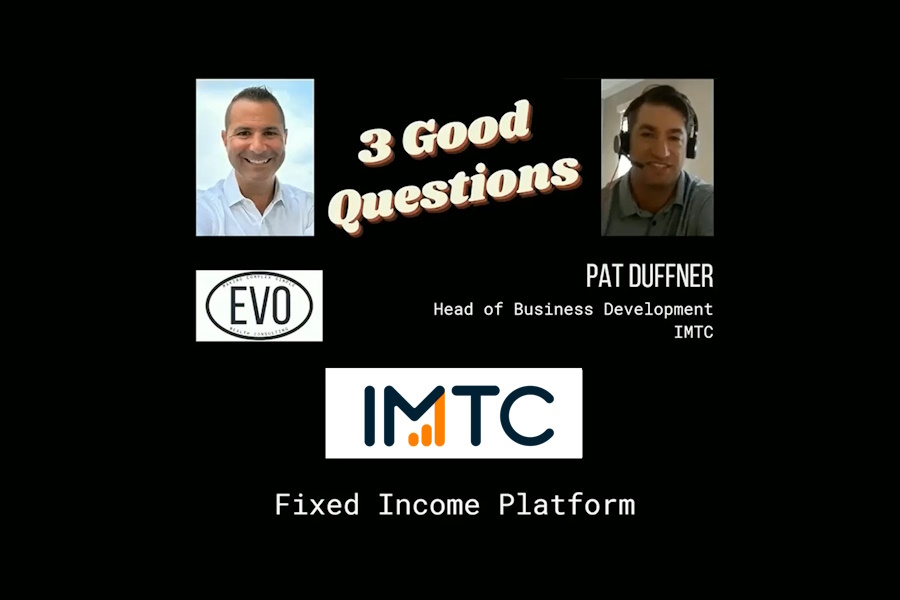Conversations on the Necessary Evolution of Asset Management

Asset management is changing. During the ABS East 2019 Conference this fall, industry titans discussed this theme and noted that fundamental change was essential and forthcoming. With the Fed slashing interest rates—the market has priced in the year’s third cut to be announced this week—yields on US Treasuries could start trending toward zero and potentially join the likes of Europe and Japan.
Today’s sustained low-rate investment environment has resulted in several important inflection points across the industry, said Scott Miller, Chief Business Development Officer at T-REX, during a panel on the investment landscape, aptly titled “The Necessary Evolution of Asset Management.” According to Miller, three fundamental shifts have occurred:
There’s a need for the buyside to look for riskier, alternative asset classes to find more gross yield; asset managers must cut expenses to drive improved investment returns; and asset managers must account for all that in an increased regulatory and risk environment. The challenge is that these three inflection points are contradictory to each other, because the quest for yield in complex markets leads to greater risk and greater expense.
As the buyside faces increased pressures, William Moretti, the managing director at Chainlink Advisory LLC, said that the asset management industry has become a “commoditized, bifurcated sector, with the extremely large asset managers seeking scalability and turning toward tech solutions to efficiently service their clients. However, Moretti maintained that there’s a “race to the bottom” in terms of fees as investors become increasingly cost averse amid this low-interest environment. On the other end of the spectrum lie the high alpha asset managers who are focused on alternative, high-end emerging assets that offer high yields but are “operationally intensive” asset classes.
Many asset managers will find it increasingly difficult to compete in this marketplace, said Moretti. “Technology is the key to survival.” As investors fight to stay afloat in the face of the industry’s headwinds, the structured finance space—which he noted hasn’t seen transformative progress for 25 years—is particularly due for an overhaul. There’s a shift towards automated trading, but spreadsheets are still primarily utilized, and deals are executed telephonically, he said.

Portfolio managers want to understand risk concentration at the touch of a button, panelists said. For example, when a major hurricane approaches, PMs should be able to assess their exposure to a geographic region across all asset classes, which is currently a complicated, manual undertaking, said Moretti, who added that rebalancing portfolios, marrying relative value versus fundamental analysis, conducting credit research and surveillance while having transparent trading info are all examples of processes that technology can transform.
Paul Livanos, Director Virtus Partners, said that as existing CLO managers pursue liability management exercises and issue new deals at all-time high levels, there’s a “tremendous operational burden, [and we’re] looking for a scalable operational platform and a front-end solution that will provide insight into portfolios.” Miller said that technology needs to account for an increasingly complex asset class mix. According to Liquidaty CEO Matt Wong, “data is at the heart of everything.” Through all of these shifts, there are opportunities to improve the way PMs operate, but those opportunities are being lost, he said.
Wong said that at the core of this necessary evolution, vendors of asset management technology might need to re-frame how they approach the industry. AI, big data and machine learning are ultimately means to an end, he said, adding that asset managers are not focused on technical jargon, but are instead primarily concerned with whether or not technology will enable them to work flexibly and efficiently.
During a thought exercise, Wong highlighted the example of utilizing a smartphone, posing the following questions: Would asset managers be able to complete personal due diligence on their smartphones or tablets? If you were forced to today, would you be able to access all of the necessary information in a compelling, visual way that someone else can comprehend? Would I be able to access my historical data and show you trends?
According to Wong, today’s predictive analytics are fairly limited, being used to provide customers fraud alerts from their personal bank or automatically send a text to notify a user of a suspicious charge. But asset managers don’t have this level of accessibility. As the industry evolves, managers will want seamless and transparent capabilities to transact and access information in the same way people are currently able to with personal finances. Interoperability will continue to be a nonnegotiable quality in tech platforms, said Wong, and on the whole, PMs will be seeking ways to make better-informed decisions about their portfolios, without waiting for a risk event to occur.





